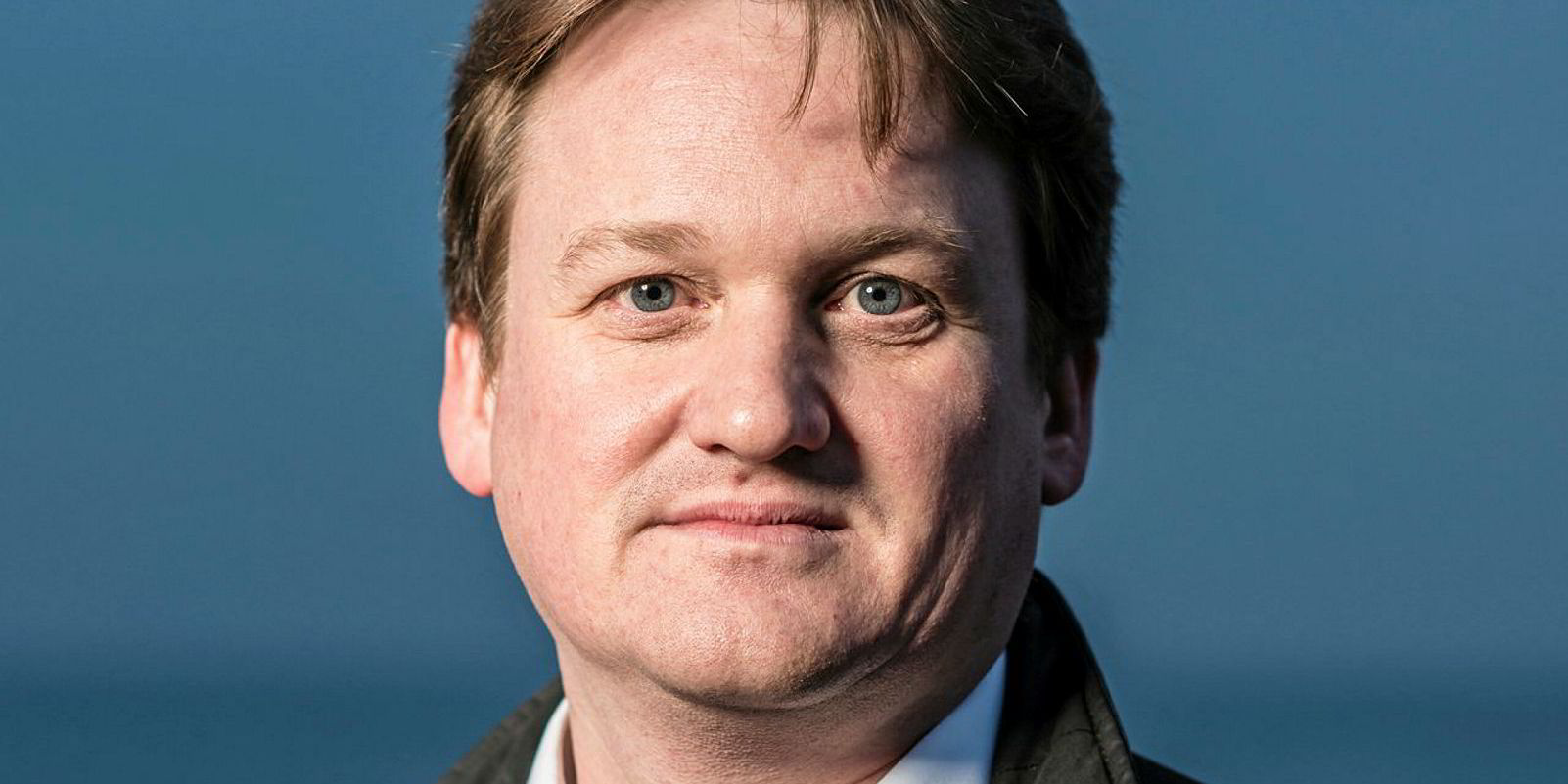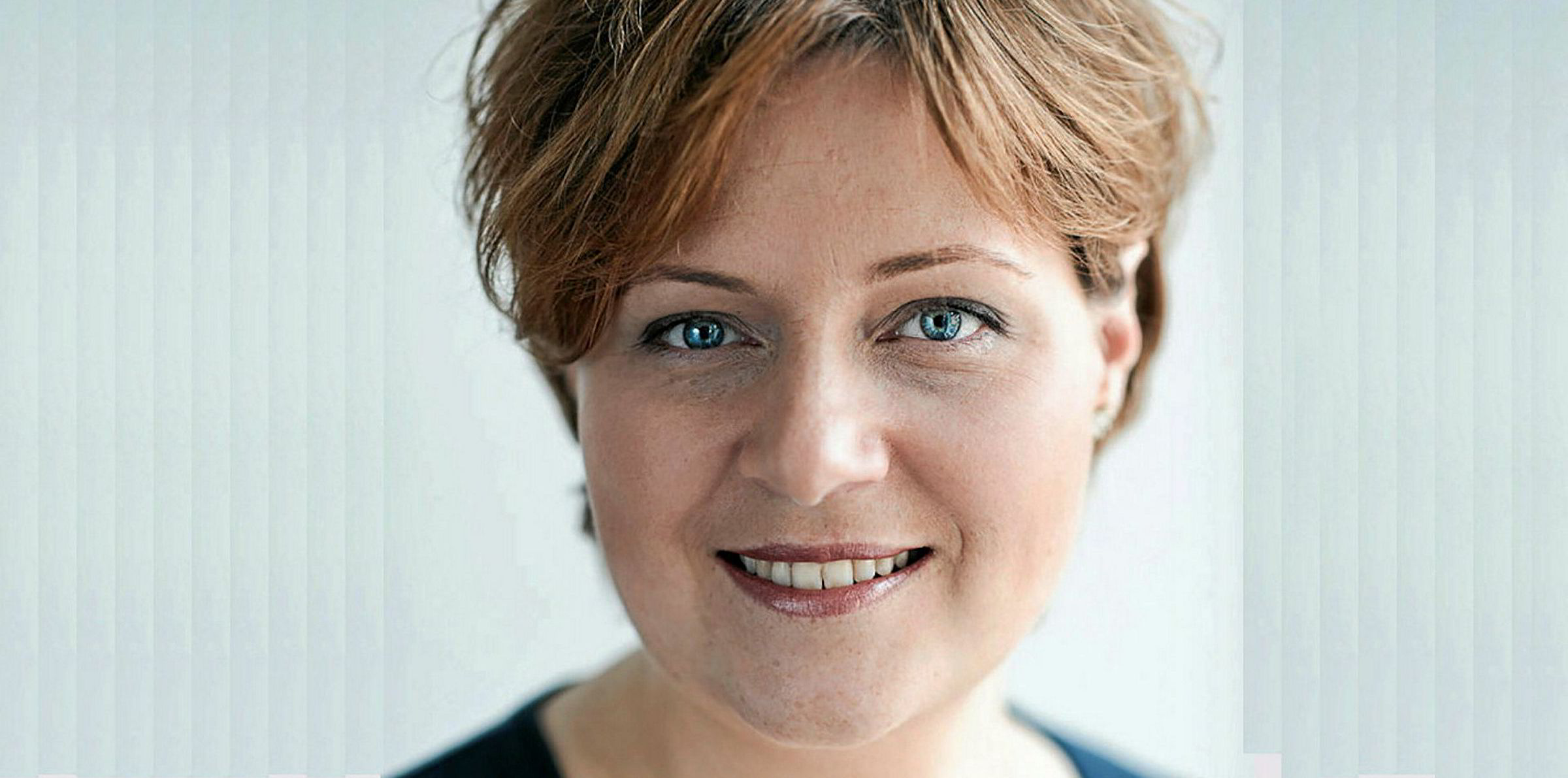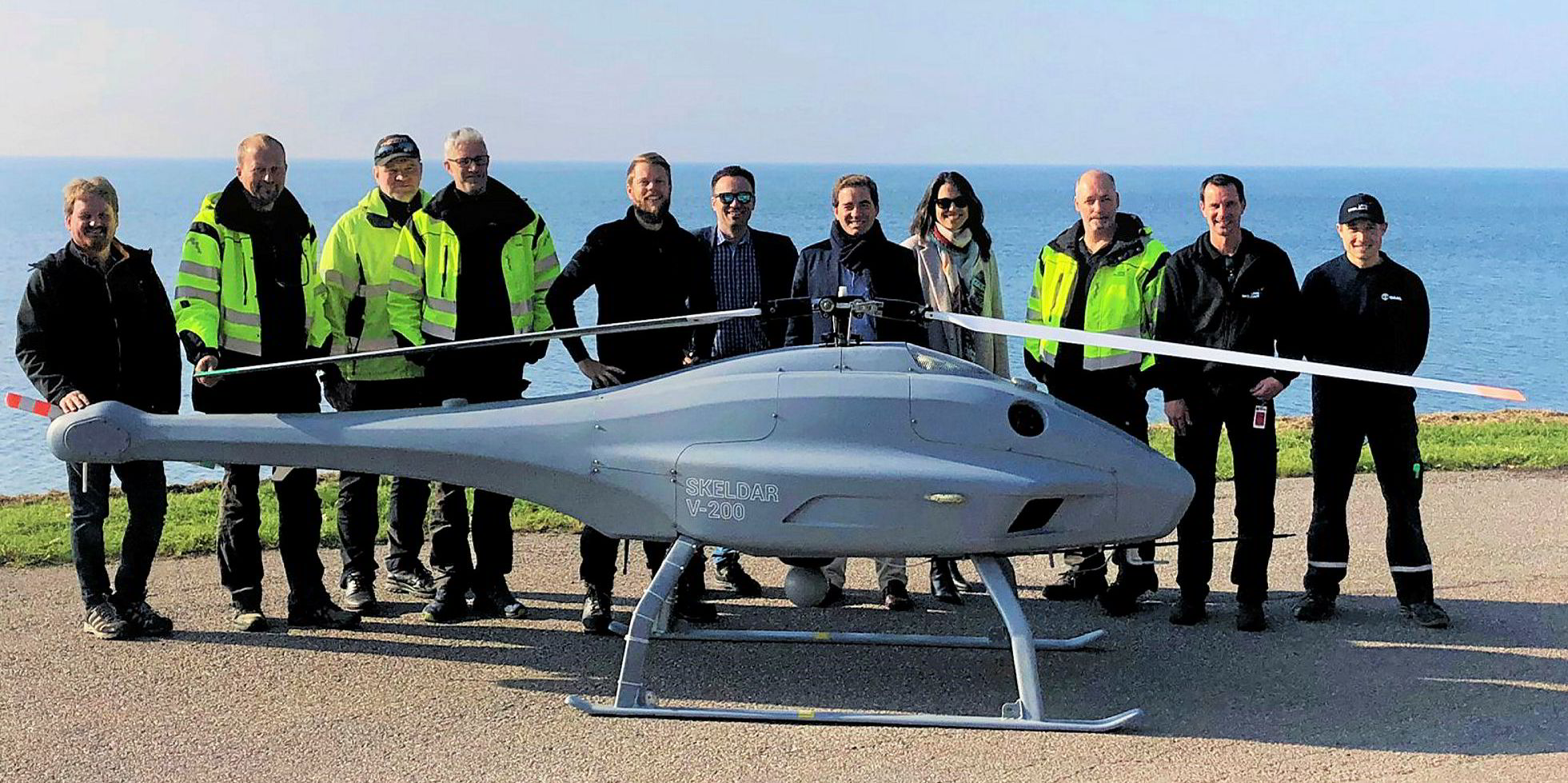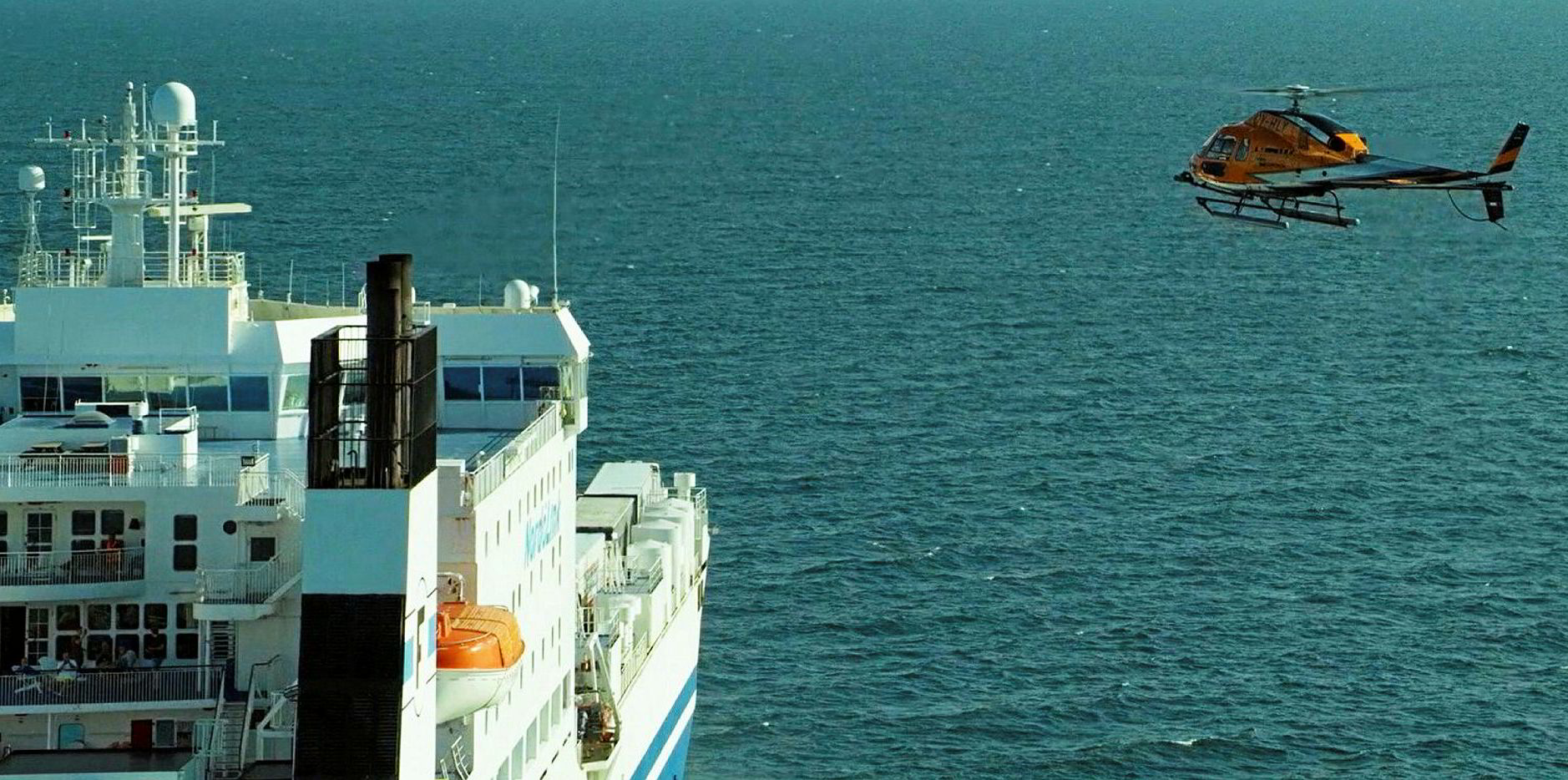Air surveillance and sensor technology linked to the power of data are sniffing out the truth about shipping emissions in the Baltic Sea.
Danish firm Explicit is the brainchild of husband and wife Jon and Bettina Knudsen, who have developed a prototype system to monitor emissions by measuring the pollutants in a vessel’s exhaust plume.
Explicit uses sensors to collect readings from plumes that are fed back into the system.
The sensors can be deployed by helicopter or drone. Drones are better suited to cover smaller areas such as ports or river deltas — a helicopter hovering above a ship is bound to attract attention, and ships have been known to ask what is going on.

Collecting the data is not straightforward because the aircraft has to be in the right position in the plume to get data.
“We realised early on that we would need a quality score to assess if the sample is good enough when the helicopter is in position,” Jon Knudsen says. “We use gas sensor parameters to tell us we are in a range of the plume where our gas sensors will perform. This is part of our patented smart flight approach.
“The sensors have a time response. All sensors do, but these are slower than traditional very high-end ambient sensors, so we need to stay in position a little longer to get a good sample.
“The combination of a gas sensor threshold and the time spent taking the sample provides the quality score.”
Helicopters are an expensive piece of kit, but, couched in terms of a pilot hour, they are efficient, Knudsen says. “We can do up to 10 ships an hour in a helicopter. With a full-size helicopter, we can measure 113 ships in Danish waters in 10 flight hours over two days, which is, more or less, every vessel in Danish waters.”

The idea was born in the shadow of tightening environmental regulations which, in 2015, saw the sulphur cap on bunker fuel used by ships operating in emission control areas (ECAs) drop from 1% to 0.1%.
Denmark is in the Baltic Sea ECA and the authorities were on the lookout for a reliable method of checking on ships in its waters.
Explicit began working on a solution six years ago with financial support from the government. In 2016, the project took a leap forward when the company showcased its wares through a series of field tests on about 300 vessels conducted with the Port of Rotterdam.
The company had agreements with Maersk and DFDS to compare its readings made from the air with those from fuel samples taken from ships. The DFDS vessels were fitted with scrubbers.
This comparative approach to validating data has been fundamental to Explicit’s growing reputation.
“It is the crucial question to answer: If the data is true?” Knudsen says. “Each data set we get builds up the credibility of our reputation.”
The veracity of the data taken from ships’ plumes incorporates a margin of error that is defined independently by Force Technology, Denmark’s national reference laboratory.

The two domestic agencies involved in monitoring shipping emissions have been impressed with the approach. Explicit has a contract with the Danish Environmental Protection Agency and the Danish Maritime Authority to conduct airborne monitoring of shipping in national waters.
Its methods have caught the attention of the European Marine Safety Agency, which, in December, announced a contract with a consortium of companies including Explicit to develop emissions monitoring.
Knudsen hopes that data taken from an air sample will become “the single point of evidence” in any subsequent court case. At present, it constitutes supportive evidence.
While Explicit’s methodology could be expanded to monitor other pollutants such as particulates, it must be tailored to the specific task. Sensors cannot be treated as generic, he says.
Knudsen acknowledges that it is still early days, and Explicit remains a small operation (there is one other team member).
But robust monitoring is essential if shipping is to respond to climate change concerns and environmental pressures. With some justification, Knudsen can lay claim to having created such a system. “The shipping industry is realising that green data has value,” he says.




